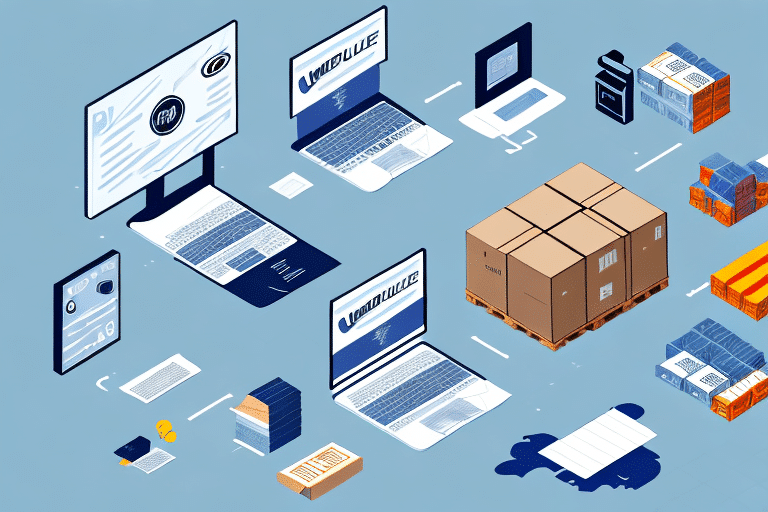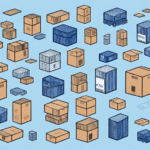The Role of 3PLs in Facilitating Ecommerce Growth and Scalability
With the rapid growth of ecommerce, the importance of having a reliable and scalable supply chain has become more crucial than ever. Third-party logistics providers (3PLs) have emerged as key players in facilitating ecommerce growth and scalability for businesses of all sizes. In this article, we will explore the basics of 3PLs, their importance in ecommerce, and how they help businesses manage their inventory, order fulfillment, shipping, and delivery processes to enhance customer satisfaction and drive growth.
Understanding Third-Party Logistics (3PLs)
Definition and Importance
A 3PL is a company that provides logistics services to businesses by outsourcing all or part of their supply chain management functions. Common services offered by 3PLs include warehousing, transportation, order fulfillment, and inventory management. According to a Statista report, the global 3PL market size was valued at over $1 trillion in 2023, highlighting its critical role in the modern supply chain.
Key Services Provided
- Warehousing: Efficient storage solutions to manage inventory.
- Transportation: Reliable shipping options to deliver products to customers.
- Order Fulfillment: Streamlined processes for picking, packing, and shipping orders.
- Inventory Management: Real-time tracking and optimization of stock levels.
Benefits of Partnering with 3PLs
Effective Inventory Management
Managing inventory is one of the most significant challenges for ecommerce businesses. 3PLs offer specialized inventory management solutions, including real-time stock tracking and demand forecasting, which help maintain optimal stock levels and reduce carrying costs.
For instance, businesses can leverage artificial intelligence and machine learning to predict demand accurately, minimizing the risk of stockouts and overstocking.
Streamlined Order Fulfillment
Order fulfillment is the backbone of any ecommerce business. Outsourcing this process to a 3PL can significantly enhance efficiency. 3PLs offer solutions like same-day shipping, flexible returns management, and international shipping capabilities, which can lead to faster delivery times and improved customer satisfaction.
According to a Shopify study, businesses that utilize 3PLs can reduce their order processing times by up to 50%, leading to higher customer retention rates.
Enhanced Shipping and Delivery Processes
Shipping and delivery are critical components of the ecommerce supply chain. 3PLs provide multi-carrier shipping options, real-time order tracking, and efficient last-mile delivery services. This ensures that products are delivered timely and cost-effectively, regardless of customer location.
Leveraging a 3PL's extensive network can also help businesses negotiate better shipping rates, resulting in significant cost savings.
Improved Customer Service and Satisfaction
Customer service and satisfaction are paramount for ecommerce success. By ensuring timely and accurate order fulfillment, 3PLs reduce the likelihood of errors and delays. Additionally, 3PLs offer flexible shipping options that cater to customer preferences, enhancing their overall shopping experience.
Real-time data analytics provided by 3PLs allow businesses to monitor performance metrics and continuously improve their logistics operations, leading to higher customer satisfaction and loyalty.
Selecting the Right 3PL Partner
Best Practices for Choosing a 3PL
- Specialization in Ecommerce: Choose a 3PL that specializes in ecommerce logistics and has a proven track record in your industry.
- Scalability: Ensure the 3PL can scale its services to meet your business's growth needs, including handling peak periods and seasonal demand.
- Technology Infrastructure: Look for a 3PL with robust technology systems, such as real-time data analytics, inventory tracking, and order fulfillment platforms.
- Transparent Pricing: Opt for a 3PL that offers clear and transparent pricing without hidden fees or surcharges.
- Customer Service Focus: Select a 3PL that prioritizes customer service and satisfaction, as this will directly impact your business's reputation.
Real-World Success Stories
Harry's
Razor maker Harry's partnered with a 3PL to streamline its supply chain, improve inventory management, and enhance order fulfillment capabilities. The collaboration resulted in reduced shipping times and costs, providing customers with a superior experience and driving increased sales.
Untuckit
Clothing brand Untuckit utilized a 3PL to manage its rapid growth and expansion into new markets. The 3PL provided scalable inventory management and order fulfillment solutions, enabling Untuckit to increase sales across multiple regions while maintaining high levels of customer service.
Koio
Footwear brand Koio partnered with a 3PL to optimize its supply chain and improve customer service. The 3PL offered real-time data analytics and insights, helping Koio make informed decisions about inventory management, order fulfillment, and shipping. This partnership led to enhanced customer satisfaction and loyalty.
Future Trends in 3PL Services
Technology Innovations
3PLs are increasingly adopting advanced technologies such as artificial intelligence (AI), machine learning, and the Internet of Things (IoT) to enhance their logistics capabilities. These technologies enable more efficient operations, better demand forecasting, and improved supply chain visibility.
Sustainability
With growing environmental concerns, 3PLs are offering more eco-friendly shipping and logistics options. Sustainable practices, such as optimizing shipping routes to reduce carbon emissions and using recyclable packaging materials, are becoming standard offerings in the 3PL industry.
Measuring 3PL Partnership Success
To ensure your 3PL partnership is driving ecommerce growth, it's essential to track key performance metrics:
- Order Fulfillment Accuracy: Measure the percentage of orders fulfilled accurately and on time to gauge logistics performance and its impact on customer satisfaction.
- Inventory Turnover: Calculate how often inventory is sold and replaced over a period to identify optimization opportunities and reduce carrying costs.
- Cost Per Order: Assess the total cost involved in processing each order, including shipping and handling, to identify areas for cost reduction.
- Net Promoter Score (NPS): Evaluate customer loyalty and satisfaction by determining how likely customers are to recommend your brand to others.
Conclusion
In conclusion, 3PLs play a vital role in facilitating ecommerce growth and scalability by offering specialized, scalable, and cost-effective logistics services. By outsourcing logistics needs to a 3PL, ecommerce businesses can focus on their core operations, increase productivity and efficiency, and enhance customer service and satisfaction. Staying ahead of trends and innovations in the logistics industry allows 3PLs to continue providing value to their clients and driving long-term ecommerce growth.






















